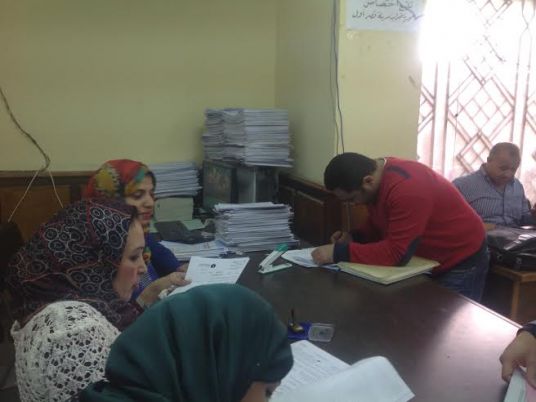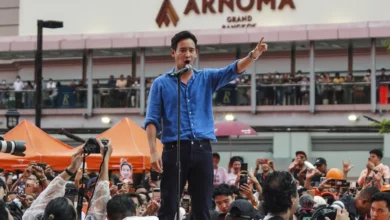New Prime Minister Kamal al-Ganzouri is on the hot seat trying to form a new cabinet. “The list of nominees is not a final one,” independent daily Al-Shorouk quotes him as saying.
Ganzouri has reportedly been thrown off balance due to criticism of his government, according to Al-Shorouk. The paper also insinuates that the Tahrir Square sit-in’s obstinate refusal to budge, especially in light of Ganzouri’s proposed cabinet, may be having the intended effect of making him rethink.
“Ganzouri is thinking, thinking … and rethinking his choices,” according to state-run Al-Gomhurriya. The paper adds that seven ministries are waiting for an appointment from the new prime minister. State-run Al-Ahram mentions Ganzouri’s decision to maintain 13 ministers from the previous cabinet, which has many protesters and activists up in arms again.
The state’s flagship paper says that activists are especially upset with the continued presence of International Cooperation and Planning Minister Fayza Abouelnaga and Information Minister Osama Heikal, due in particular to the latter's role in state media coverage of the Maspero violence on 9 October.
Almost all papers report on a chaotic two days in the prime minister's office, which appears to be firing shots in the dark with its cabinet appointments.
Protests in front of the cabinet continue, and demonstrators marched with several empty coffins representing martyrs from the last round of violence on Friday, according to Al-Ahram. It adds that all the main revolutionary groups have announced they will continue their sit-in.
Al-Shorouk however, paints a different picture: “Demonstrators in Tahrir fail to reach a decision about opening the square, even after a petition went around asking people their opinions on the matter."
Meanwhile, details of the electoral run-off due to start in two days have emerged as the country aims to put a lid on the first round of parliamentary elections. An Al-Ahram report says that 104 candidates are competing over the remaining 52 seats.
Although the first round was largely peaceful and more transparent than recent parliamentary elections in Egypt, the High Elections Commission is looking into proposing a law to help avoid repeating the mistakes of the first round of voting. One potential recommendation is that judges count ballots immediately in the polling stations where they are cast, rather than taking them to a central location in each district for counting.
Also proposed is an awareness initiative to help voters cast their ballots without falling into one of the many pitfalls that could invalidate their votes.
The Wafd Party seems to be the only major political force raising a stink over voting irregularities and how they may have affected the party's performance. Its whining stance is made abundantly clear in its party paper, Al-Wafd.
“The party insists on continuing with its message and overcoming any adversity or stumbling blocks,” reads a headline on its front page. Ahmed al-Zend, head of the Judges Club, is quoted as saying judges received 1579 complaints about voting irregularities. The Wafd Party actually didn’t perform that badly, overall placing fourth among parties after the first round of voting, according to Al-Ahram statistics.
Wafd is one of the parties that has become a second home for many members of the now-dissolved National Democratic Party (NDP). Since re-emerging as the New Wafd Party in the early 1980s, its members have been unable to live up to the revolutionary legacy of the party’s forefather, Saad Zaghloul.
The ruling military council seems to be set on forming a civilian advisory council for the Supreme Council of the Armed Forces (SCAF). Field Marshal Hussein Tantawi is set to issue a decree forming it soon. Tantawi’s deputy, Sami Anan, can be seen in all government newspapers meeting with the so-called civilian leaders and making a show of this new council, which is supposed to help the SCAF think through its decisions like actual adults. However, the fact that the council is not featured in any independent papers may be a cause for concern.
Meanwhile, according to Al-Shorouk, anti-corruption activists made more strides when the Supreme Administrative Court decided to nullify contracts that privatized the Arab Company for International Trade back in 1999, i.e. when Ganzouri was last prime minister.
Many parts of the country are experiencing a dilemma with high-priced propane tanks, which are supposed to be subsidized. Government-issued tanks have disappeared, causing supply shortages across the country, Al-Ahram says.
Al-Gomhurriya interviews Ahmed al-Touni, CEO of the public company that supplies the tanks. He said that there is no real crisis, and that retailers created it by hiding products and artificially hiking prices. His response has been to release more tanks onto the market, which he thinks will solve the crisis.
Egypt's papers:
Al-Ahram: Daily, state-run, largest distribution in Egypt
Al-Akhbar: Daily, state-run, second to Al-Ahram in institutional size
Al-Gomhurriya: Daily, state-run
Rose al-Youssef: Daily, state-run
Al-Dostour: Daily, privately owned
Al-Shorouk: Daily, privately owned
Al-Wafd: Daily, published by the liberal Wafd Party
Youm7: Daily, privately owned
Al-Tahrir: Daily, privately owned
Freedom and Justice: Daily, published by the Muslim Brotherhood's Freedom and Justice Party
Sawt al-Umma: Weekly, privately owned
Al-Arabi: Weekly, published by the Nasserist Party




